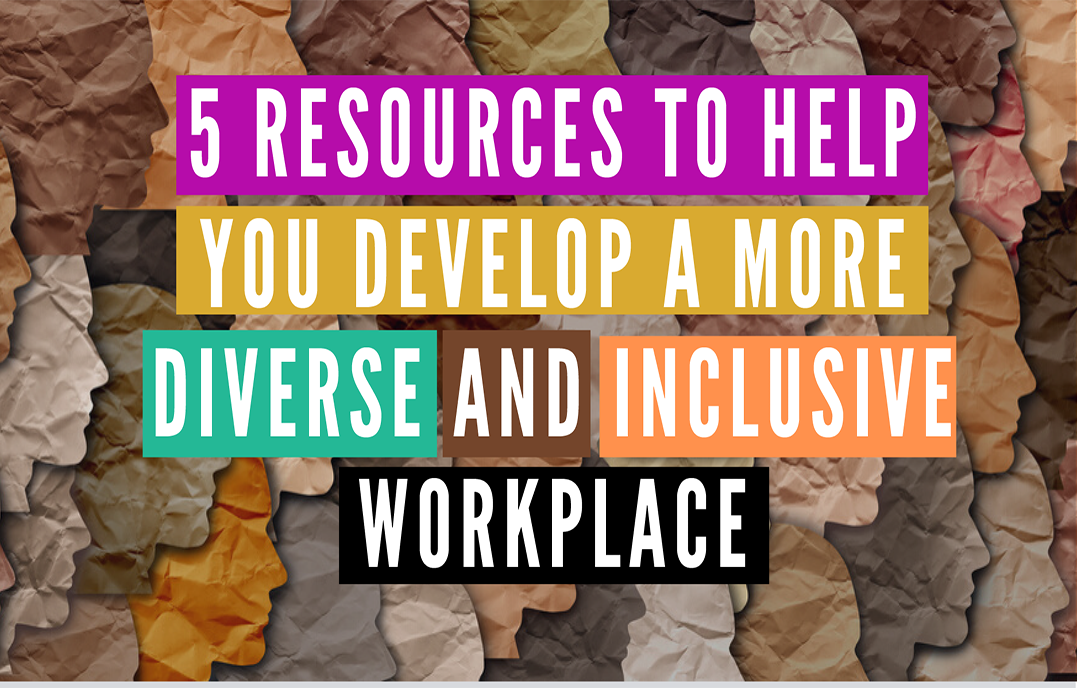No matter who we are or where we come from, our assumptions and beliefs are shaped by our experiences, our upbringing, our race, our gender, religion, culture. Those beliefs help us navigate and make sense of everyday life. But they can also mean that we believe that there is no difference between our perceptions and reality. For leaders, that means we must continuously question our assumptions and value the voices of people who are not like us to help us assess reality correctly. That requires creating a culture that is not only more diverse, but more importantly, more inclusive, so that our employees are encouraged to express their ideas and share their insights.
Here are five resources we recommend to help you develop a more diverse and inclusive culture.
 1. Inclusion: Diversity, the New Workplace & the Will to Change by Jennifer Brown
1. Inclusion: Diversity, the New Workplace & the Will to Change by Jennifer Brown
What it’s about: A roadmap for anyone seeking to understand the objective reality of what diversity and inclusion mean, why it matters, and how to make it part of your organization’s DNA.
Why pick it up: To learn about how to build systems that embrace diversity in all its forms, from identity and background to diversity of thought, style, approach, and experience, that tie directly to the bottom line.
 2. Blindspot: Hidden Biases of Good People by Mahzarin R. Banaji and Anthony G. Greenwald
2. Blindspot: Hidden Biases of Good People by Mahzarin R. Banaji and Anthony G. Greenwald
What it’s about: I know my own mind. I am able to assess others in a fair and accurate way. These self-perceptions are challenged by leading psychologists Mahzarin R. Banaji and Anthony G. Greenwald as they explore the hidden biases we all carry from a lifetime of exposure to cultural attitudes about age, gender, race, ethnicity, religion, social class, sexuality, disability status, and nationality.
Why pick it up: To reveal how our unconscious minds influence our beliefs and behaviors, and remind us to think twice about our instinctive reactions.
 3. Is It Possible to Unravel Unconscious Bias? TEDTalk by Yassmin Abdel-Magied
3. Is It Possible to Unravel Unconscious Bias? TEDTalk by Yassmin Abdel-Magied
What it’s about and why watch it: Abdel-Magied is an engineer, motorsport enthusiast, writer, broadcaster, boxer, and black Muslim woman. Her TEDTalk makes the case for how, if we want to live in a world where the circumstances of your birth do not dictate your future and where equal opportunity is ubiquitous, each and every one of us has a role to play in making sure unconscious bias does not determine our lives.
 4. Can We Solve for Unconscious Bias in Tech? TEDTalk by Andreas Ekström
4. Can We Solve for Unconscious Bias in Tech? TEDTalk by Andreas Ekström
What it’s about and why watch it: We think of search engines as unbiased sources of information. But they’re not—and they can be manipulated. Andreas Ekström asks: who should hold the burden of addressing bias in search engines?
 5. How Does Bias Affect the Way We Listen? TEDTalk by Tony Salvador
5. How Does Bias Affect the Way We Listen? TEDTalk by Tony Salvador
What it’s about and why watch it: We have to start every conversation fresh. We have to be vulnerable. We have to listen to ideas that we may not like and entertain them and struggle with them and keep them in our heads for a period of time until we develop a mutual understanding.
Bottom line. To lead effectively today, you need to constantly recalibrate your ability to assess reality correctly. Exercise your diversity and inclusion muscles by building your library of resources that challenge your perception of reality as a human being and as a leader.
Question: What resources do you use to challenge your perception of reality?
Driven by the premise that excellence is the result of aligning people, purpose and performance, Center for Executive Excellence facilitates training in leading self, leading teams and leading organizations. To learn more, subscribe to receive CEE News!




